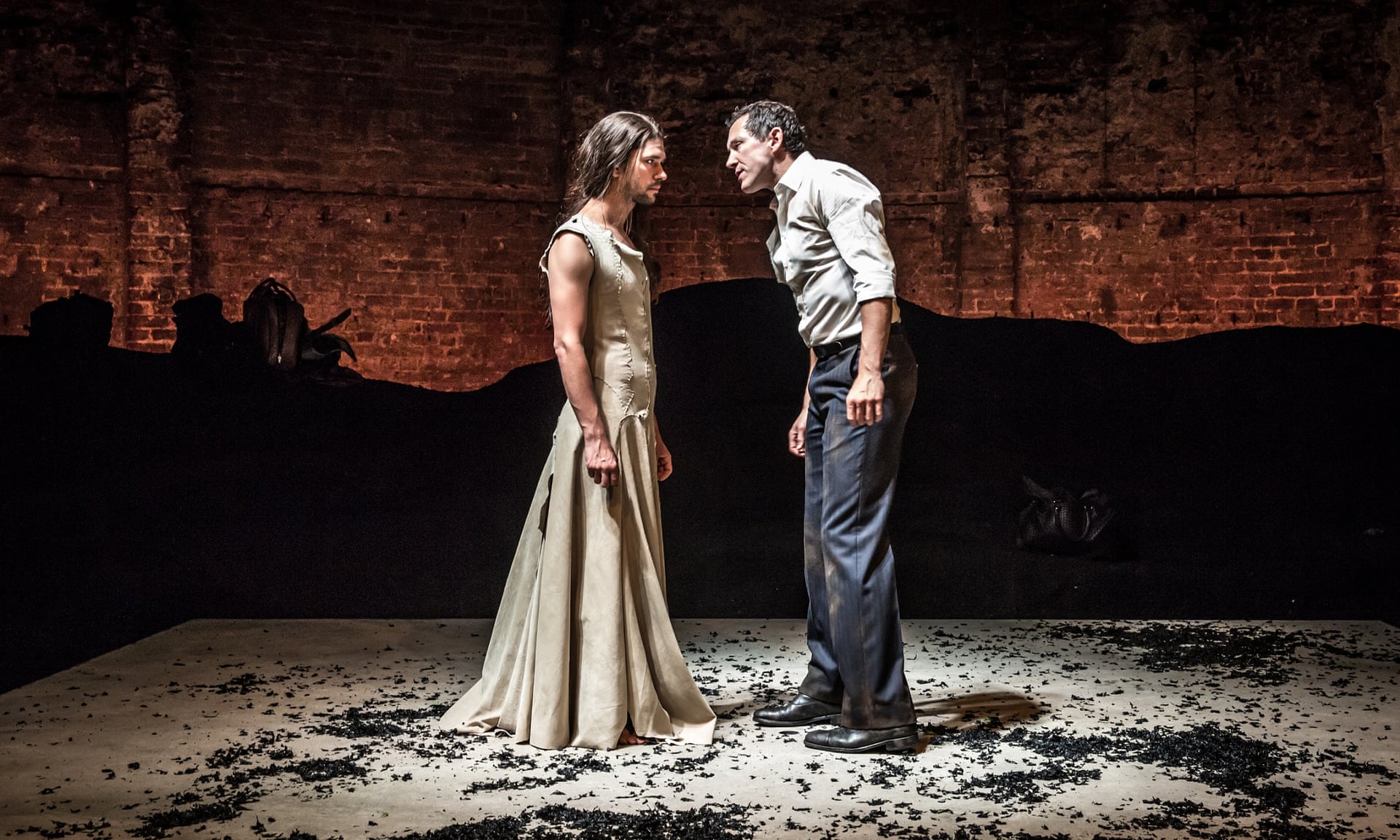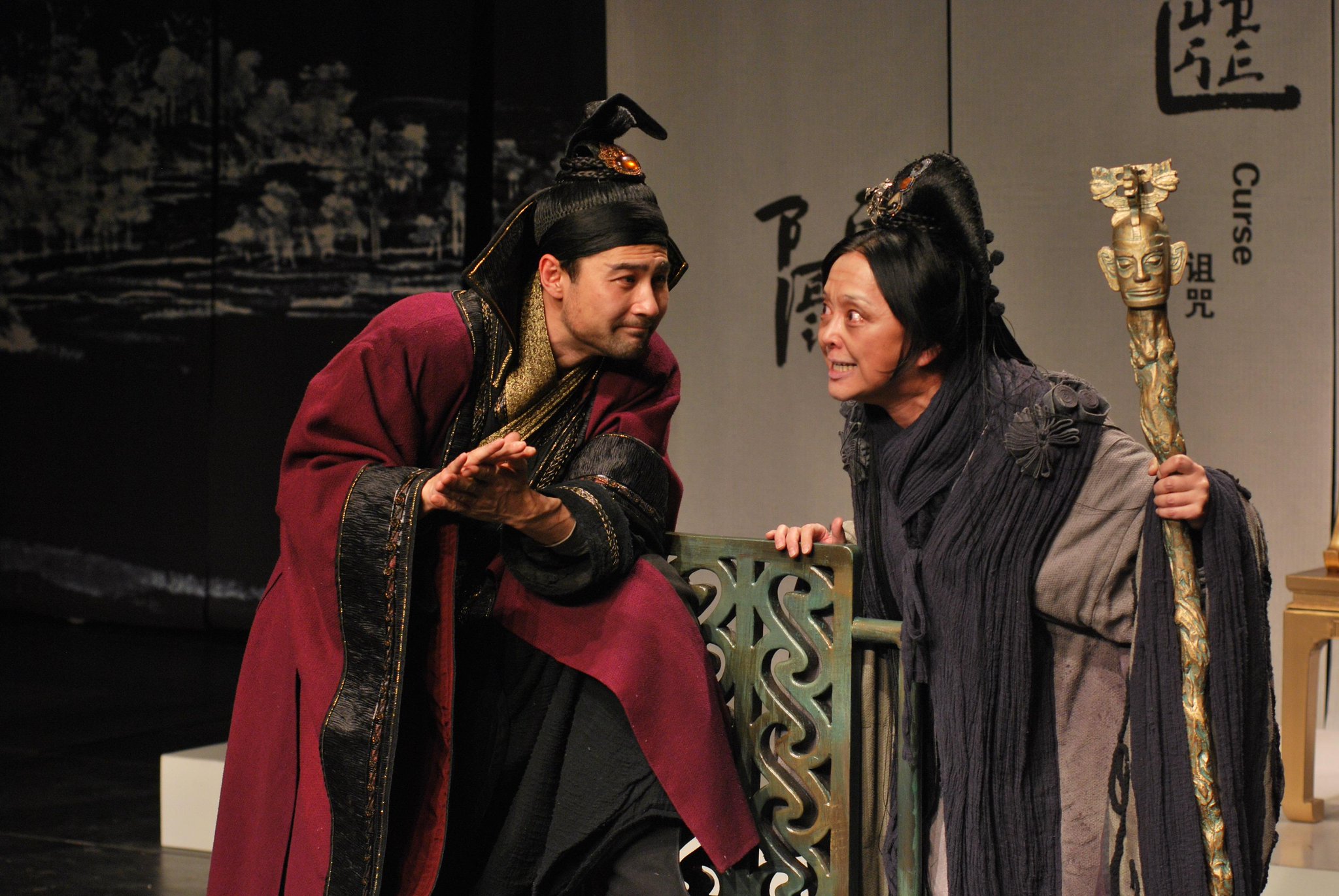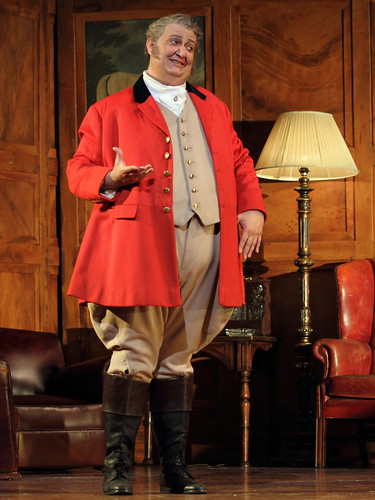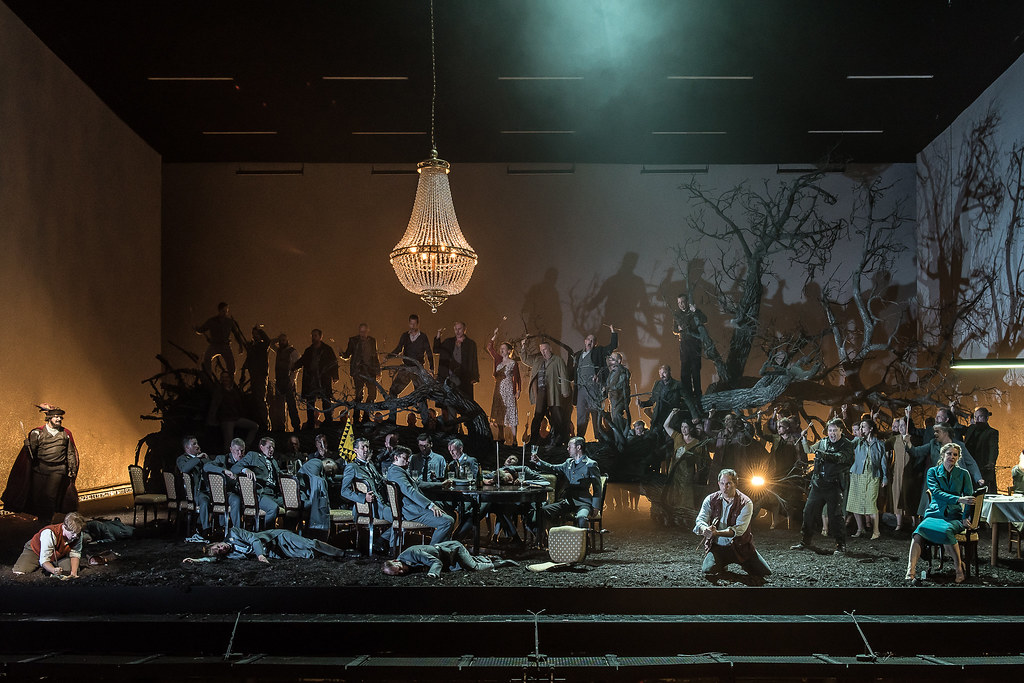 |
Friday 31 July 2015
A Number, Young Vic ****
Tuesday 28 July 2015
Bakkhai, Almeida Theatre ***
 |
Constellations, Trafalgar Studios ****
 |
Richard III, Shakespeare's Globe ****
 |
Saul, Glyndebourne *****
 |
Falstaff, Royal Opera House ****
 | |
Tuesday 21 July 2015
American Idiot, Arts Theatre *
 |
An Oak Tree, National Theatre ***
 |
 |
Friday 17 July 2015
The Trial, Young Vic *****
 |
To Kill a Mockingbird, Barbican Theatre ****
 |
Richard II, Shakespeare's Globe ****
 | |
It is safe to say that the RSC will need to seriously impress to top this splendid production. You first notice the amazing set design from Paul Willis, capturing the extravagance and ceremony in the court of Richard and also the religion,with a walkway shaped like a cross or cathedral to capture the fall of a king in a Christ- like fashion. Whilst no one is portrayed particularly well in the play, Richard is the most sympathetic and his fall from grace feels similar to the passion from the overt references to Pilate to being ultimately betrayed by his once loyal follower, Aumerle who is played with fire and wit by Graham Butler. Charles Edward's king is tremendous, showing flare and elegance which descends into raw emotion gradually throughout the play in a way that is painful to watch. Sturzaker is brilliantly dark yet righteous as Bolingbroke, a character that is complicated and interesting to play. The rest of the cast do the production credit and are fascinating to watch. This is another hit from Godwin and the Globe as the season gets into full flow.
Thursday 16 July 2015
The Mentalists, Whyndham's Theatre ***
 |
Merchant of Venice, Royal Shakespeare Theatre ***
 |
Therefore, it felt great to come out and say that it is OK. It is far from perfect. The pendulum was distracting with no real purpose; the brass set, whilst meaningful, felt like a wrong move; and the use of a Brechtian style of theatre had no real purpose and made it feel more like a student production than an RSC one. However, I can watch Patsy Ferran act all day without getting bored and the company, who are in rep, are just as fantastic in this as they were in Othello. It feels fantastic to see a production that focuses on Portia rather than just on the anti- semitism and Shylock. The route Findlay has chosen for then relationship between Antonio and Bassanio, whilst an odd one, is justifiable and makes the final scenes bubble and come alive. Khoury is perfectly fine as Shylock,even if his story is brought back and Tim Samuels makes a decent stab at injecting some fun and dry humour into Lancelot Gobbo. The production as a whole is quite eerie and feels quite experimental so that, whilst it does have flaws, I came out not regretting my decision to see this daring and odd take on Shakespeare's troublesome play.
Othello, Royal Shakespeare Theatre ****
 |
 |
Sunday 12 July 2015
Guillaume Tell, Royal Opera House **
 |
Temple, Donmar Warehouse ****
 |
From the outside, Temple looks neither exciting nor fast- paced, following the dean of St Paul's Cathedral during the occupy movement in quite a traditional set design from Tim Hatley. However, there is a bite and an energy to Steve Waters' play that makes this make sense at the Donmar. Russell Beale's dean is abrasive and sarcastic at times yet is ultimately sympathetic and caring in a performance that is so watchable. The play deals with the role of the church in the modern age whether it is by it's presence on Twitter, like the Canon Chancellor, or by using the media, like the Bishop of London. The dean is critical of both of these attempts yet his resistance to change, represented by Occupy, eventually chokes him. Waters' message is about the need for the establishment to move with the times and stay relevant, whether that be the church or the government. As I am not aquainted with the Anglican clergy hierarchy, some of the relationships between the characters confusing. Davies' direction keeps the play from seeming protentious and maintains a pulse. Performances are good across the board. Simon is, of course, magnificent, whilst the anger of Paul Higgins almost helped me get over the English southern accent which is quite strange after being so used to the astonishing voice he has in his normal Scottish accent. Sinclair's Bishop is wonderfully devisive, in a similar fashion to Ralph Fiennes' interpretation of the same character in Rev. The choristers are cheeky and bring some light relief whilst Shereen Martin and Anna Calder- Marshall are also full of character in their roles as the lawyer and virger. However, for me, Rebecca Humphries gives the best turn as the dean's PA. Her part is the best written and the audience's view on her changes throughout the drama due to her heart rendering performance. This is a production that proves that the church can be discussed in a way that isn't a sermon whilst also appreciating their role in modern day society.
Death of a Salesman, Noël Coward Theatre ****
 |
The Motherfucker with the Hat, National Theatre ****
 |
 |
Monday 6 July 2015
High Society, The Old Vic **
 |
The Rape of Lucretia, Glyndebourne ****
 |
Subscribe to:
Posts (Atom)